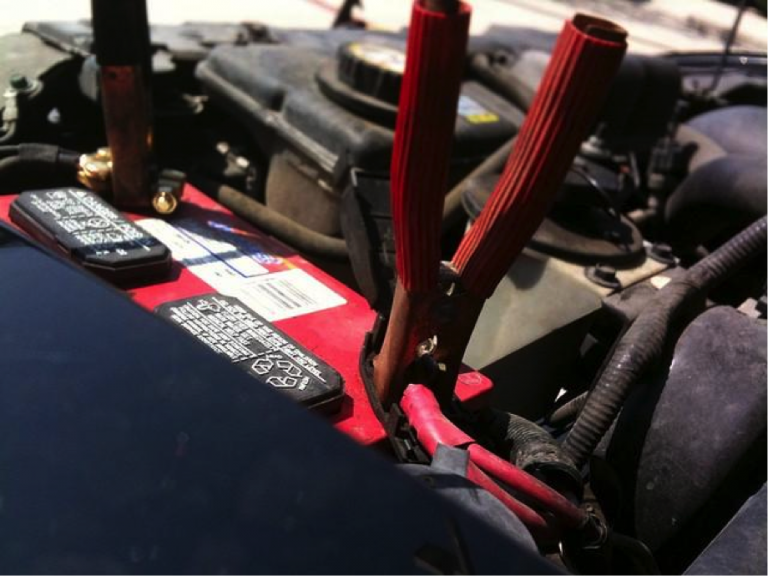It’s easy to forget your car battery is even there when your ignition, stereo and car lights work the way they should. Eventually, you may notice signs that warn you it’s time to be a bit more aware of your auto battery.
Many auto conditions under the hood can mimic battery issues, so it’s best to have a qualified technician check out your car to get a proper diagnosis. Some of the signs you may notice when your battery is failing include the ones listed below.
Interior Vehicle Clues
Your car, truck or SUV has several systems in place to warn you about battery problems. Nearly every modern car is outfitted with a simple dashboard battery monitor that shows you the resting and cranking power your battery has available. You’ll see voltage wavering somewhere between 12 and 14 volts in a capable battery. If the voltage stays right at or falls below12 volts consistently, your battery or some other car part may need replacing.
In some makes of vehicles, battery warning lights will glow if your vehicle has electrical issues. Additionally, if the car battery’s voltage falls below a certain value, your check-engine light may suddenly appear to warn you about the problem.
You may also have trouble with interior lights when your battery is drained or otherwise not carrying a full power load. Dash and overhead lights may flicker or dim on startup. Devices and dashboard features may not work properly.
Starting and Driving Clues
One of the first signs of a failing battery that many drivers notice is the whining or groaning attempts of their car to start as they turn the key in the ignition. You’ll hear this repetitive noise without the engine turning over. Only after you’ve made several attempts does the engine finally rumble to life.
It’s important to note that other problems may cause a slow starting condition in your vehicle. A faulty ignition switch, starter,alternator, distributor or spark plug may cause your starting problems, while the battery is just fine. However, if you don’t address the other car repair issues,your battery will have extra stress placed on it and will likely fail sooner.
If you’ve had to jump-start your car more than three times in a week, it’s time for a new battery. It’s also a smart idea to let your service center inspect your vehicle for any other issues that could affect the electrical system.
Under-the-Hood Clues
If you suspect you’re having battery issues, ask yourself how long ago you had it installed. Batteries that are well-maintained and not placed under stress will last four to six years. A battery at the end of this life cycle should be replaced before it fails completely. If you’re not sure when you bought the battery, look on the battery itself for a sticker noting the date.
While under the hood, inspect the battery to discover any physical reasons why the battery is not delivering the proper voltage. Look first at the terminals on the battery. Are they corroded or covered in rust? A good cleaning by your service center may be all your battery needs to be good as new.
Some batteries need water or have a closed chamber full of electrolyte solution. If temperatures outside are sizzling or your engine is running on the hotside, the water or solution inside the battery may evaporate and cause the battery to fail. Learn how to check the water in the battery, or ask your service technician to check it for you. Only deionized or demineralized water should be used.
In the case of the closed-electrolyte system, you must purchase a new battery once the solution is compromised. You may notice this is the problem when you smell a strong rotten-egg odor near the battery. The smell is due to sulfur that’s part of the battery-solution’s contents. This problem can also happen in extremely cold temperatures when the solution gels or freezes completely.
Another sign you might find under the hood is a swollen or cracked battery. If this is the case, do not attempt to start or drive the vehicle. A swollen battery can explode at any moment due to the combination of hydrogen gas and high temperature building pressure inside the case. Call a tow truck to safely deliver your vehicle to your local service center as soon as possible,and alert the tow truck operator to the condition of the battery.
The cause of a swollen battery case is most often overcharging. A trickle charger or other external charging device may have malfunctioned. Or you could have a problem with the construction of the battery itself. Another possibility is that a collision or other blunt force damaged the internal components of the battery.
At Evans Tire & Service Centers, we maintain, service and replace batteries to give you peace of mind. Contact us today to schedule your battery inspection or replacement.

